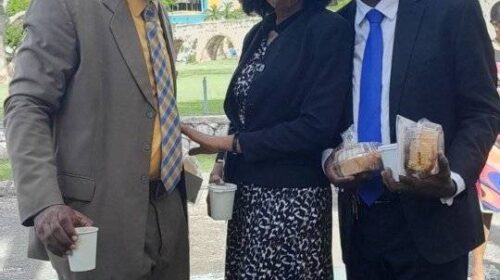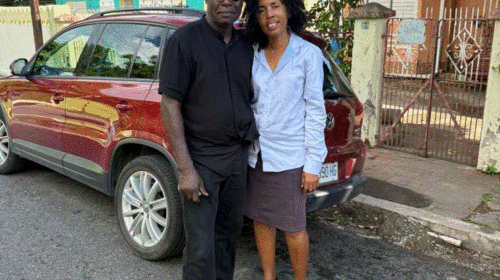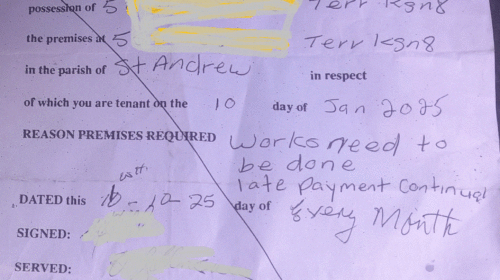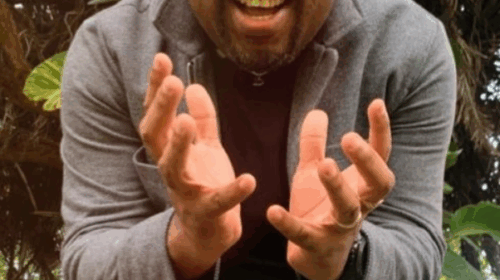Ian Boyne, GLEANER Contributor
If you are a person struggling to make ends meet and you feel you have been personally hurt and treated unfairly by our media, what avenues of redress do you have, besides taking out a lawsuit or hoping (no guarantee) for a brief letter to the editor to be published?
If you are a public official who has been unfairly, prejudicially and consistently misrepresented in media, suffering damage to your hard-fought reputation, should you really have to wait for years for a libel case to be heard to get vindication, even if you have the money? Shouldn’t there be an independent body to which you could go to have your complaints heard and evaluated?
After all, if you have problems with medical, legal and real-estate professionals, there are bodies you can appeal to for justice, so why should it be any different with media professionals? Why should they be exempt from normal canons of accountability?
You would think that an influential group like media – particularly print, which has nothing similar to the Broadcasting Commission even – would have mechanisms to ensure accountability. Who can speak more sanctimoniously and self-righteously about accountability – ad nauseam – than media people, especially in editorials? Accountability for everybody but ourselves. And civil society allows this vulgar exemption to go on without question.
But perhaps, for good, pragmatic reasons; for people have learnt that you don’t mess with the press. We can destroy you. And when we don’t, just leaving you alone might be worse than destruction! So with all the high-profile campaign of Professor Trevor Munroe and his National Integrity Action (NIA) group over corruption, there is no focus on potential media corruption.
Now, I agree that because of our decadent political culture, the State has to receive special and particular focus. But I would like to challenge the NIA and the Jamaica Civil Society Coalition (JCSC) to also give some attention to media power and the potential for abuse there, too.
HOWLS FROM ECHO CHAMBER
People, especially politicians who are always fair game for attack, know the bullying tactics and demagoguery of the media. But once any politician talks about media irresponsibility or talks about media bias, there are the reflexive howls from the echo chamber about censorship, threats to press freedom, democracy, Big Brother coming after the virtuous press. The usual conversation-stoppers. And usually it works. The politician usually cowers under the media outburst because he knows he has no one to speak up for him, except paid hacks or party supporters who have no credibility anyway.
The best advice PR people can give politicians or public officials is, don’t take on the media. You can’t win. They command the airtime and newsprint, and even if they grudgingly give you some space to answer, they broadcast and publish every day and they have no obligation to give you an incessant right to reply. Plus, there are many subtle ways to skin a cat, and if the media see you as antagonistic, they won’t be there for you when you need them.
Tell me, with all the investigative awards being given out by both the Press Association of Jamaica and the Jamaica Broilers Fairplay Awards, when last did you hear of someone copping an award for investigating corruption or abuse of power in the private sector? When last was there a probing, investigative series, on either television or print, on a big private-sector company, a big conglomerate? Anybody getting any awards for investigating unfair competition in the marketplace? This is a free market. Any investigation of unfair pricing, insider trading, etc.?
Now, it could be that our big private-sector companies are as pure as the driven snow and that the problems with companies in other capitalist markets are totally absent here. Perhaps we only have problems with Government and quasi-state entities. Tell me, what is the chance that you could see an investigative series in the Observer on working conditions at the Sandals hotels, with anonymous interviews with waiters, room-service employees, etc.?
Do you think a bright, enterprising reporter would go to his editor there with that idea and his editor would say, “Great, let us prove that there is a firewall between editorial and executive office! Let’s show Jamaica that we are not just mouthing about press independence and freedom.” Suppose an equally enterprising Gleaner reporter gets a tip-off about some curious dealings in a company related to the owners of The Gleaner Company? Do you think he would do his sleuth work, have it published and collect an investigative award for it? (Mark you, I am not hinting that there is anything curious going on in any business related to any director of this venerable newspaper. And ditto with Sandals.)
TO WHAT END?
So when the second vice-president of my Press Association, in giving the review of National Journalism Week, pledges that “for the next year the PAJ will continue to increase its training courses on investigative and business reporting”, to what end will that be put?
To investigate only state-related entities and to learn how to write better articles puffing certain companies? Will those investigative skills gained be turned on big corporate entities on which media houses depend for their survival and sustenance?
In a year when media will be even more dependent on the scarce and diminishing advertising/sponsorship dollar, is the PAJ going to be training more of its members to be adept at exposing what might be wrong in our private-sector companies, as is done in mature democracies? Or don’t we have any problem there at all, and all we should be focusing on is a single anti-corruption authority to chase after state crooks?
Is NIA or JCSC (which, incidentally, includes the powerful business groups) going to be even half as interested in issues of the use of power in this society generally, not just state power?
They could start with accountability in media and by asking the Media Association Jamaica some reasonable questions, seeing that the journalists who work in their media houses might be too scared to host programmes and do news stories on the issue. They could ask why, after many years of working to develop a Code of Professional Conduct among journalists, and why, with the PAJ agreeing to a press complaints council, there is no such council today? Not just no council, not even a discussion on it.
Clare Forrester, in her well-needed, highly useful weekly column on media, asked poignantly last Wednesday, why there has been “the absence of any serious debate here in recent months … because the Press Association of Jamaica went to a lot of effort in compiling a new Code of Practice to replace the 1965 PAJ Code of Ethics, after many months of deliberation and national consultation”. And yet, she notes, the issue is not even being discussed.
Clare, whom the PAJ justifiably inducted into its Hall of Fame at its awards banquet two Fridays ago, questions why only the visiting British journalist raised the issue of a press complaints commission or council. What she – and all of us – should find even more puzzling and absolutely inexplicable is that in the PAJ’s review, written by Arthur Hall, one of our best, there is absolutely not a whisper about a need for a complaints council, even on the heels of the furore over Lord Leveson’s 2,000-page report calling for a new regulatory body to oversee the British press.
ARTHUR HAS A NERVE!
Arthur was just reciting the usual journalistic liturgy about reform of libel laws (long overdue, indeed): “The issue of reform of the libel laws will also be championed, with the PAJ determined to hold Government to its commitment that legislation will be before Parliament by the end of the legislative year.” He has a nerve! Not a word said about a complaints council which PAJ signed on to years ago and yet we are holding Government to its word when we are free to disregard ours? Such is our psychopathological arrogance. It’s an occupational hazard.
Claude Robinson, journalist extraordinaire, who did a lot of work on the new Code of Conduct, expressed his frustration with its non-implementation in January 2011. “The Media Association Jamaica and the Press Association of Jamaica must stop shilly-shallying and implement the revised code of professional practice which the PAJ has accepted … the proposed media complaints commission or council must be implemented without further delay. This will give teeth to the code by providing the public with a body to which aggrieved persons can seek redress from journalistic violations … .”
In fact, precisely in an environment of relaxed libel reforms – desperately needed – we need a council to ensure that people’s rights are protected. The press has no prior and privileged rights above the people. It is representative of the people, but it is not the people, though in its arrogance it behaves so. The press can itself be a violator of the people’s rights.
Bruce Golding posed a simple but coercively decisive question in Parliament when he tabled the bill setting out libel reform, a commitment he had given in his party manifesto and kept. He said: “There has been talk among media practitioners for a long time about a code of professional conduct. It doesn’t exist and, therefore, I am challenging the media to explain why it is so difficult for a profession that is so concerned, and rightly so passionate, about standards and ethics; why is it that the press has had such a difficulty in establishing among themselves a code of professional ethics?”
An answer has never even been attempted by any journalist or media boss. Why should we? We had the power to ignore him. After all, where is he now, and where are we? We are still here, busy with our job of anointing messiahs and crucifying them.
Ian Boyne is a veteran journalist.
Author Profile
- ... author, qualified & experienced in journalism, creative writing, editing, the arts, art critique, paralegal, photography, teaching, research, event planning, motivational speaking, workshops for children and adults, visual arts etc. Click here for contact form. ...or email me here
Latest entries
 Raw and DirectJanuary 25, 2026JAMAICANS BEWARE: Jobs at risk for vanishing by 2027
Raw and DirectJanuary 25, 2026JAMAICANS BEWARE: Jobs at risk for vanishing by 2027 Raw and DirectJanuary 25, 2026Fare thee well Donald Oliver
Raw and DirectJanuary 25, 2026Fare thee well Donald Oliver Jamaica Art ScopeJanuary 24, 2026Clovis Nelson, Anthea McGibbon meet up
Jamaica Art ScopeJanuary 24, 2026Clovis Nelson, Anthea McGibbon meet up Raw and DirectJanuary 18, 2026Ways to improve Jamaica: 61-70: the streets
Raw and DirectJanuary 18, 2026Ways to improve Jamaica: 61-70: the streets












